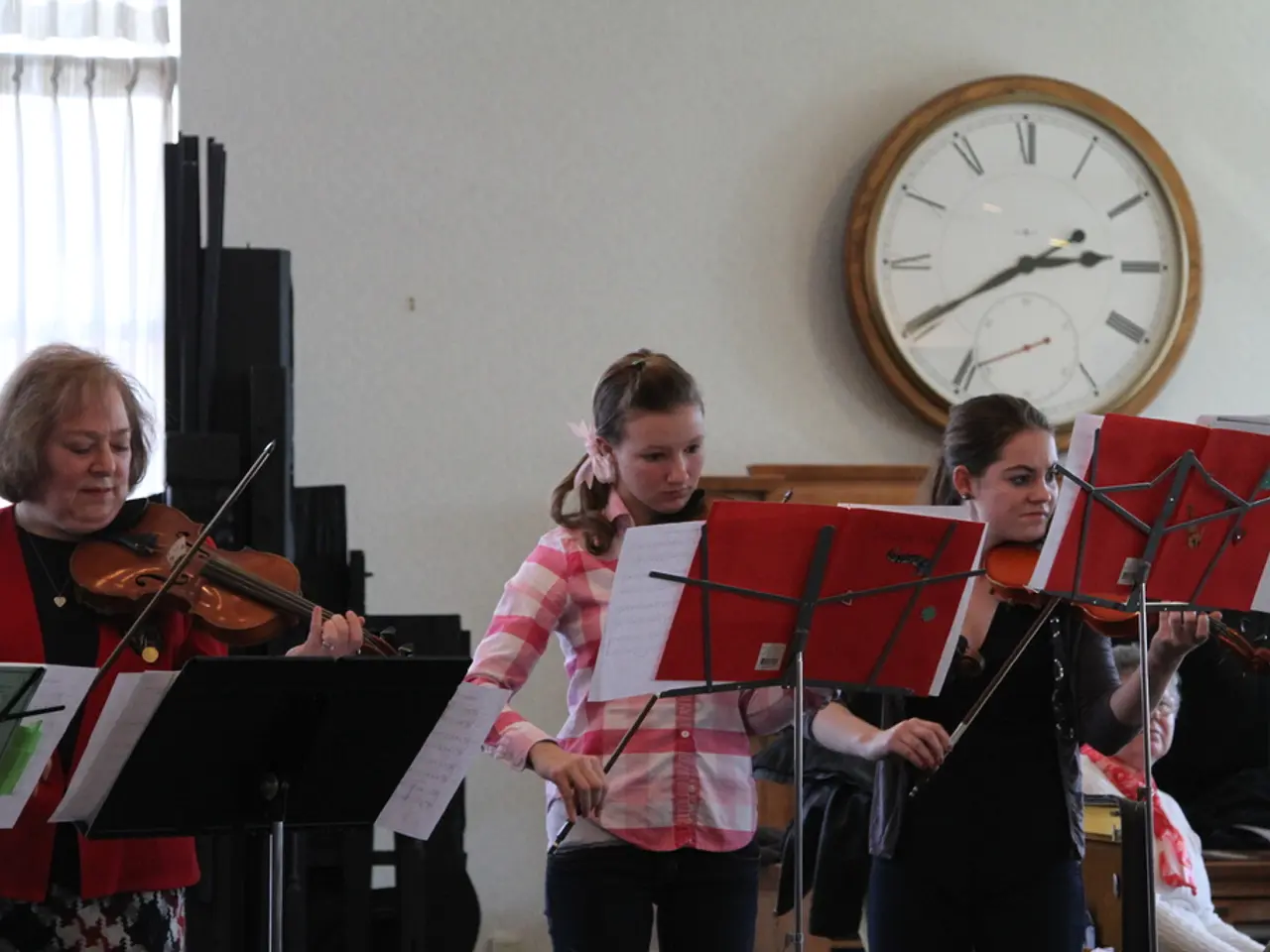Brooklyn Report: The Sauler Sisters – Gayna Kieval and Bianca Bergman
In the mid-20th century, the Jewish community and the world of art music witnessed the emergence of the Sauler sisters, Gayna Sauler Kieval and Bianca Sauler Bergman, as remarkable vocal talents. Born to Cantor William Sauler, a refugee from Nazi Germany who had a distinguished 28-year career at the Brooklyn Jewish Center in New York, the sisters were figures in the transitional period from the European Jewish immigrant milieu to the post-World War Two American Jewish cultural landscape.
Cantor Sauler's daughter, Bianca, made her debut in the genre of Yiddish art songs with her solo performance on Lazare Weiner's 1967 album, "Lazare Weiner Songs." However, she effectively ended her singing career in 1973 after getting married and starting a family. Gayna, on the other hand, continued to concertize and sing some opera roles in the first years of her marriage but began a second career as a pre-school teacher for economic stability.
The Sauler sisters' careers were structured in a way that provided inconsistent employment and were inadequately remunerated. Despite these challenges, they played a significant role in a musical economy that embraced both the Jewish community and the larger world of art music. The sisters frequently served as backup singers for guest-star cantors, cementing their connection to their father's social world.
Gayna worked as the choir director for her husband, Cantor Robert Kieval, for 18 years out of his 25-year position at B'nai Israel Congregation in Rockville, Maryland. Robert Kieval, a leading figure in the cantorial community, passed away on January 23, 2022. His wife, Gayna Sauler Kieval, has been interviewed for an oral history video.
The Cantors Assembly's new initiative, the Cantorial and Synagogue Music Archive (CSMA), will utilise Robert Kieval's collection of old cantorial manuscripts. The CSMA aims to preserve and disseminate the privately held music collections of cantors, a valuable resource for future generations to explore and understand the rich history of Jewish music.
While the Sauler sisters' contributions to Jewish music and the art music world may not be as widely documented as some other figures of the era, their impact on the transitional period cannot be underestimated. Notable figures from that time include Leonard Bernstein, Aleksandr Zhitomirsky, Sholom Secunda, and Lazar Weiner, all of whom made significant contributions to Jewish music.
For more detailed information on specific contributions or individuals, it might be helpful to consult specialized music archives or historical resources focused on Jewish music and art music from the mid-20th century. The Sauler sisters, with their unique blend of Jewish and art music talent, undoubtedly left a lasting impression on the musical landscape of their time.
Gayna Sauler Kieval, despite transitioning to a career as a pre-school teacher, continued to contribute significantly to the musical landscape through her work with art songs and her choir direction. Bianca Sauler Bergman, in her debut on Lazare Weiner's album, demonstrated her talent in Yiddish art songs, showcasing the Sauler sisters' involvement in both the Jewish community and the broader art music world.




